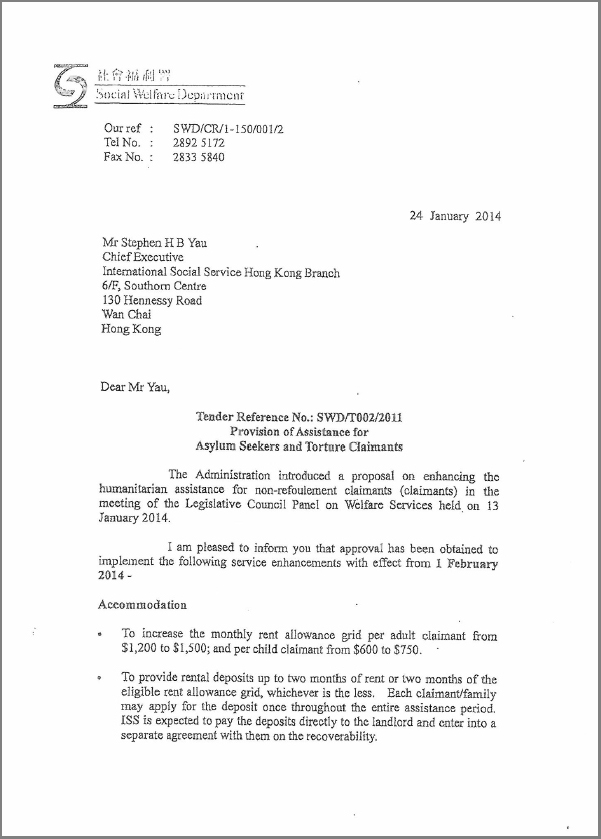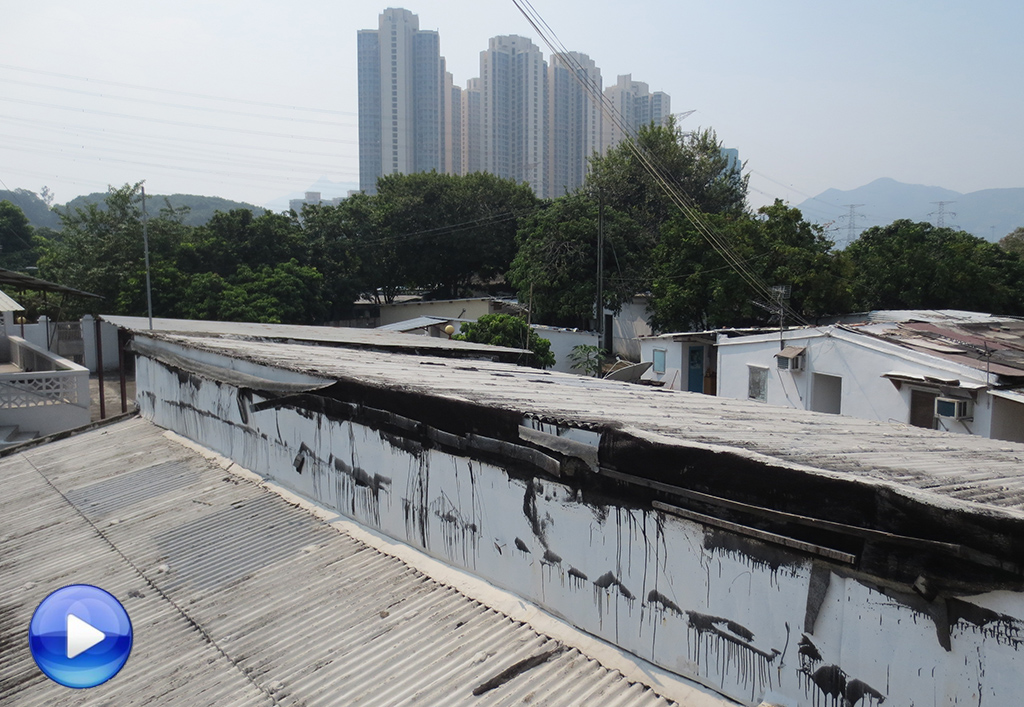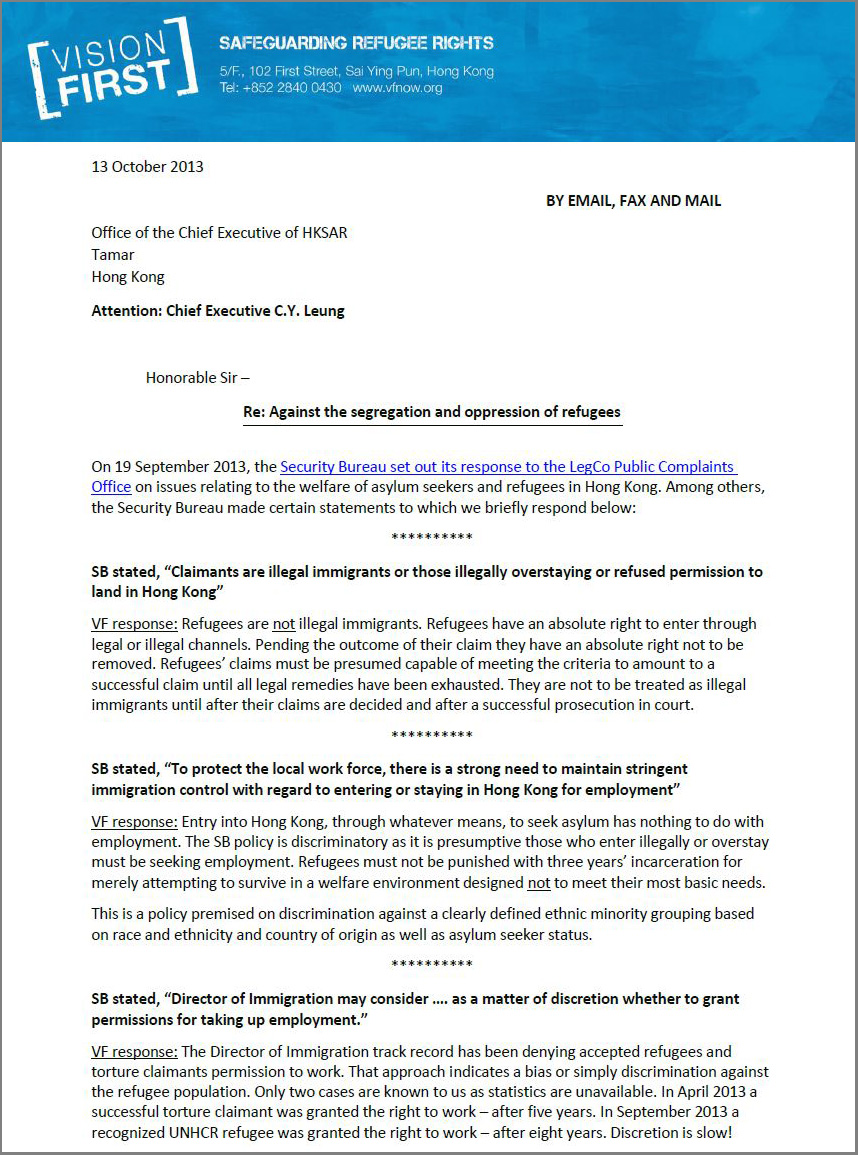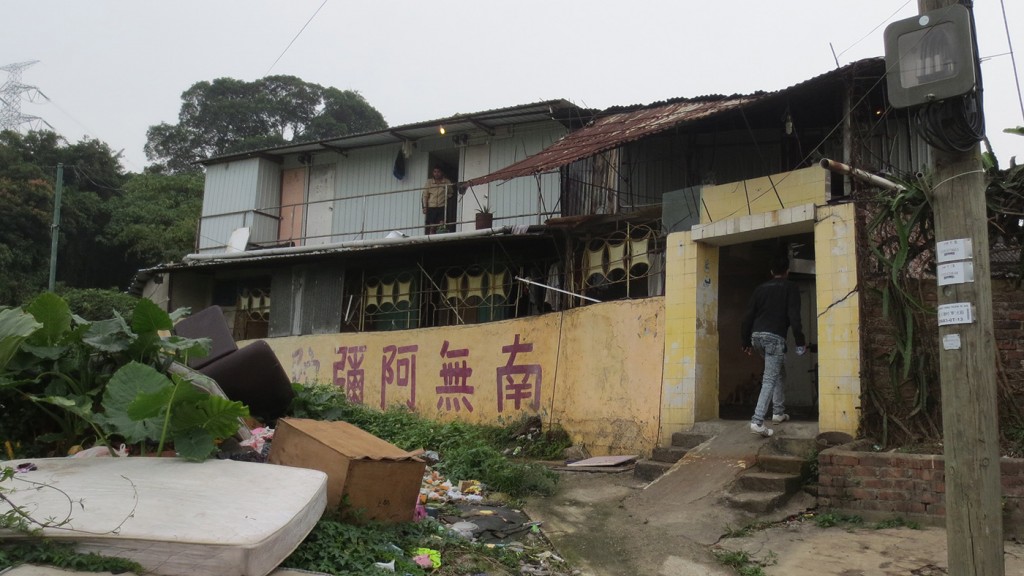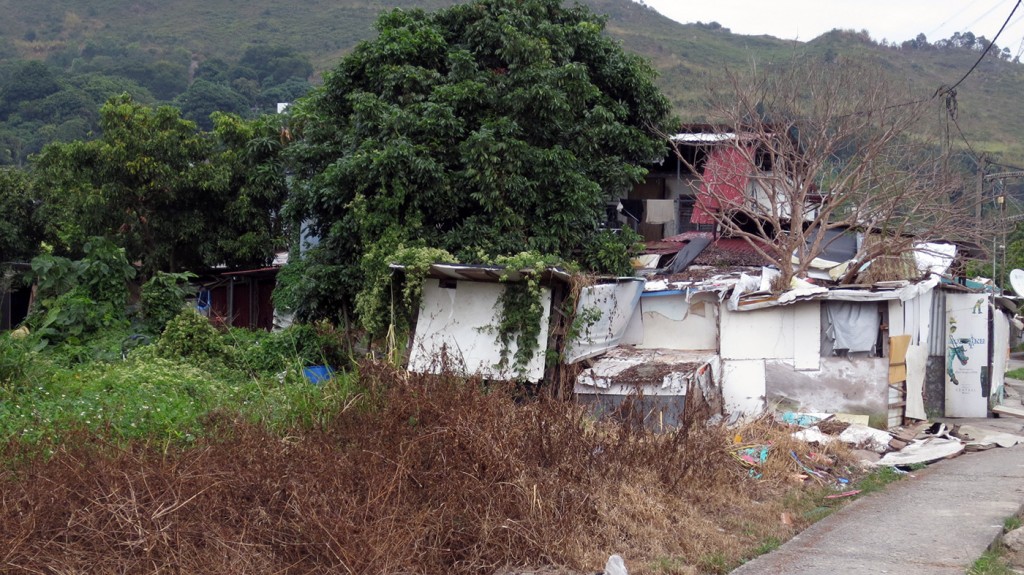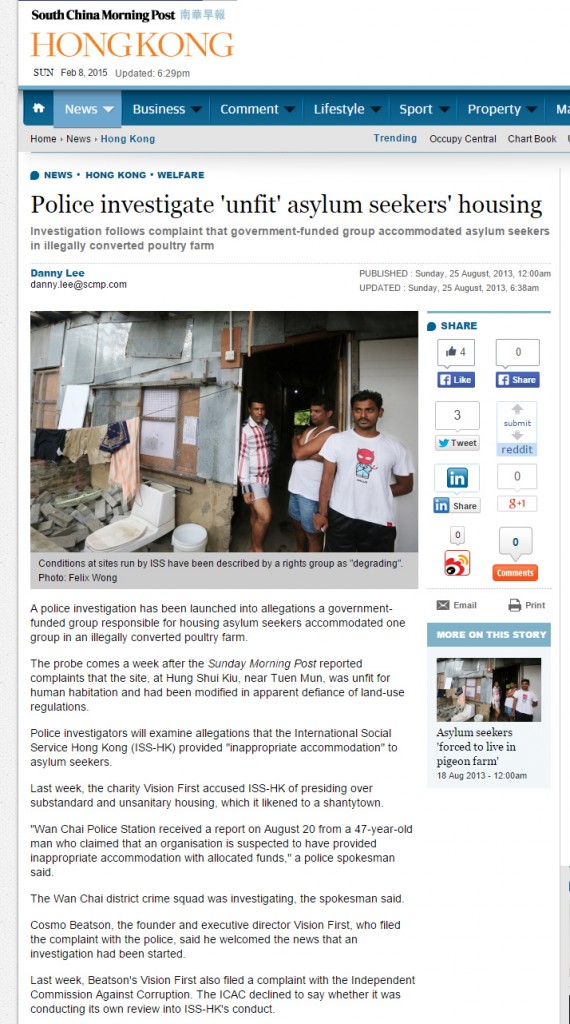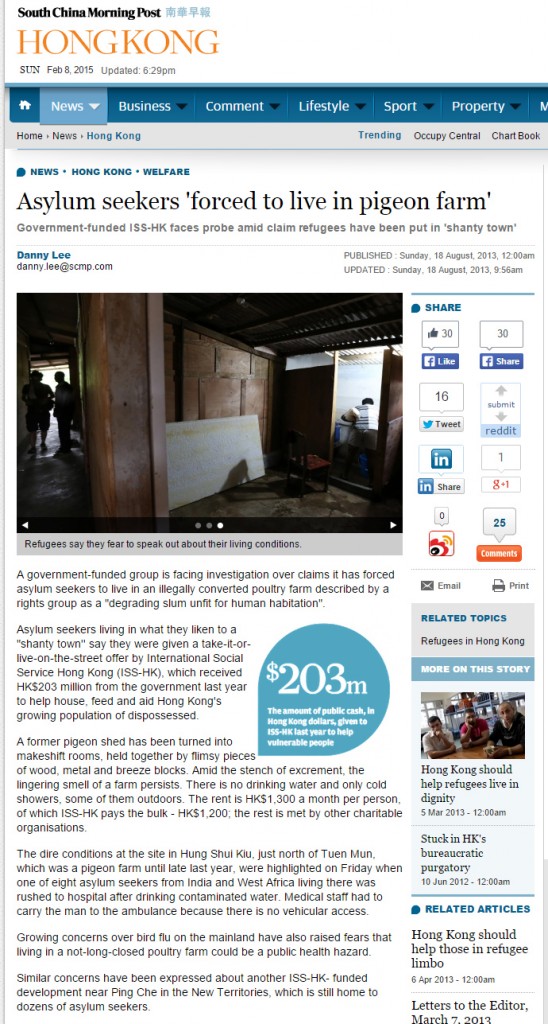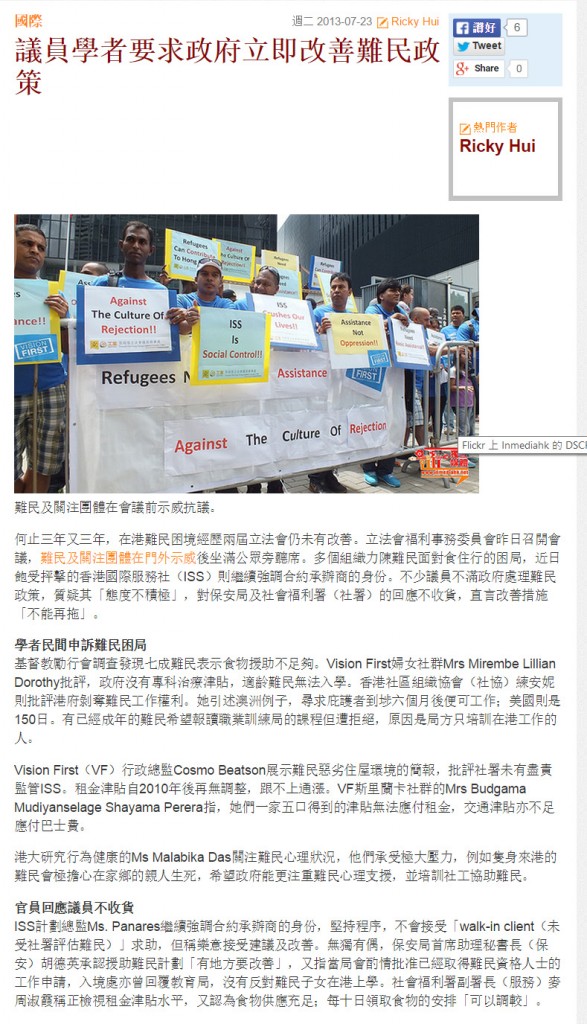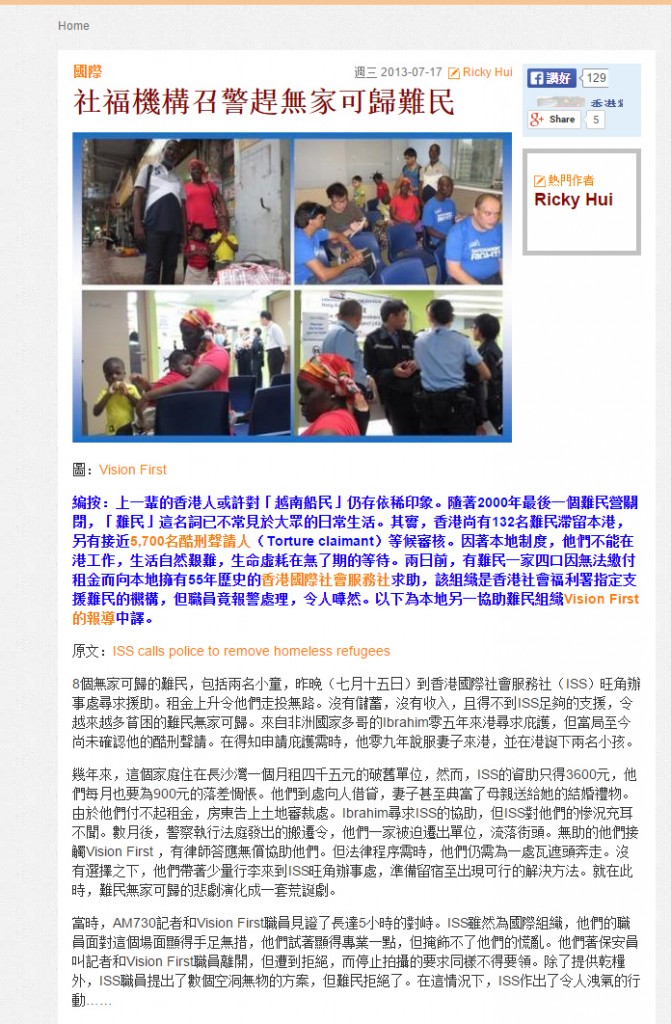SWD enhances levels of assistance for refugees
Jan 30th, 2014 | Food, Government, Housing, Welfare | Comment
Crashing through the poverty line
Nov 2nd, 2013 | Food, Housing, VF Report, Welfare | Comment
A new study reveals that 1.5 million Hongkongers live a poor and deprived life. This bleak picture takes into account not only income but deprivation, but how some in the city are forced to forgo items and social activities that most people consider customary. Poverty is not more than financial. It is defined as having insufficient resources over time, as a deprivation that excludes from participation in society.
The government is brainstorming poverty alleviation for 1.5 million citizens, who do have access to the labor market, welfare system and social network. Falling through the cracks is the comparatively smaller group of 6000 refugees who were not included in the above study due to irregular status. And yet this minority lives at the outer fringe of poverty and is more marginalized, deprived and excluded from society.
Revealing the official poverty statistics, the government acknowledged that “being poor in Hong Kong” means earning less than 3600$ for a single person, less than 7700$ for a couple and less than 11,500$ for a family of three. How do refugees fare in comparison? A single person’s allowance is 2,260$ (1200 for rent plus 1060 in food), which condemns refugees to struggling 37% below the poverty line.
The High Court found that a refugee “deserves sympathy and should not be left in a destitute state during the determination of his status … The provision of assistance clearly removes the need of a genuine claimant to seek employment pending the determination of his claim”. Vision First tirelessly reiterates and emphasizes that this is not happening. The government is in breach of this judgment.
There are many issues plaguing refugee welfare besides segregation in government-run ghettos. Vision First is also gravely concerned about the distribution of 53,424,000 HK$ in food assistance. This annual figure is calculated by multiplying 4200 service users (recent ISS-HK quote), by the stated 1060$ in groceries, by twelve months. But what is the total value of food that reaches the plates of refugees?
We will reveal the results of a month-long research next week. There are serious doubts whether fraud and collusion are absent from the distribution of 53 million dollars through 7 shops owned by 5 companies. Is it possible that five different businessmen provide equivalent poor quality and low quantity in different districts without price fixing? Who is responsible for monitoring food value, food quality and adherence to the rule of law? Is somebody turning a blind eye? Is it not a level playing field?
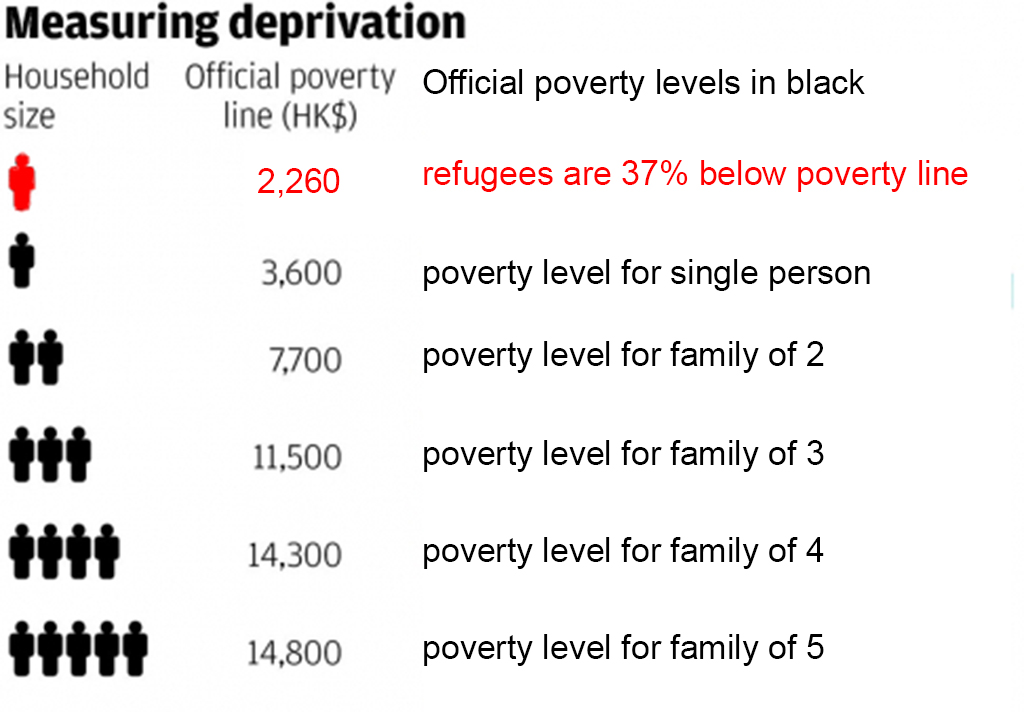
Understanding the pig farm connection
Oct 23rd, 2013 | Housing, VF Report, Welfare | Comment
In April 2006 the Social Welfare Department signed the first service contract with International Social Service (ISS-HK) to ensure, among other objectives, that refugees during their stay in Hong Kong, “would not be left to sleep in the street”.
[Note: HKSAR refuses to make public contracts between SWD and ISS. From 2006 to 2013 SWD subvented ISS-HK with hundreds of millions of dollars. Details for 2012 are available in these SWD-ISS Service Specifications. On 28 Sep 2012 ISS-HK signed a contract worth HK$ 396,877,881 – including HK$ 40,000,000 in salaries, to be explored in an upcoming blog]
In April 2006 the Government announced the “Voluntary surrender of pig farm licenses”. This incentive scheme encouraged pig famers to surrender their licenses voluntarily and cease pig farming to reduce associated public health and environmental pollution problems. At that time local farms supplied markets with 20% of fresh pork, a quantity later replaced by imports from the Mainland.
The ex-gratia payment to the pig industry was budgeted at HK$ 941,700,000 (min. HK$ 450,000 and max. HK$ 25,450,000) to close down pig sheds and surrendered licenses. As a corollary the Government introduced legislation to stop the issue of new licenses and froze the rearing capacity of those not joining the scheme. In brief, pig farming stopped and sheds lay empty.
For a while the farmers were content with the pay-outs, but they soon looked upon empty sheds and wondered how to redevelop them profitably. Most remain abandoned to this day, though a few unscrupulous landlords turned animal farms into refugee ghettos. It is unclear how the conspiracy started, though there is evidence that ISS pushed refugees to the farmers in 2007.
Vision First is investigating numerous violations of several ordinances. Chief among our concerns are violations of Section 25 of the Building Ordinance which specifies land use. With regard to breaches of Section 25, the penalties are defined in Section 40 as a level 5 fine (50,000$ per offence) and imprisonment for one year. More critically, the Government may impose an encumbrance, impairing the transfer and lessening the value of the land.
There is no excuse for conspiring with pig farmers to settle refugees illegally.
Against the segregation and oppression of refugees
Oct 13th, 2013 | Advocacy, Food, Housing, VF Opinion, Welfare | Comment
No. 20 – The Slum on the Hilltop
Sep 13th, 2013 | Advocacy, Crime, Housing, Welfare | Comment
In the hills south of Yuen Long are many slums ISS sponsors and supports for refugees. The conversion of animal farms into refugee slums is a striking pattern and a preference for case workers. After the first farmer agreed to house refugees in abandoned sheds, many have followed. It’s been a gold rush of sorts!
This particular location was established over three years ago as the longest resident has been here since 2010, although others have since left. The conditions are primitive and harsh. We were unable to stay longer than a couple of minutes in any baking container. It is reported these once rented for 400$ before landlords learnt about the 1200$ ISS paid for refugees. Since then business is booming and work expansions are everywhere.
Housing refugees is good business and, until recently, nobody cared about falsifying documents. ISS contracts at this location bear a number of addresses that clash spectacularly with the one on the Lands Department notice. It is inexplicable that two refugees share one container while their ISS contracts show “89 Shek Tong Tsuen” and “18 Chuk San Tsuen”. A container straddling two villages – how bizarre!
The living conditions are now familiar to our website viewers. We are no longer shocked or even surprised that ISS case workers approve converted animal sheds for human habitation, well, at least not for themselves and their family. The pattern widens and expands. The ISS case workers who signed contracts in this slum are: Tanya Sze, Tofu Lau, Catherine Chan, Mary Lee and Eric So with several clients each.
It is alarming that the same dozen case workers appear to be managing ISS Slum Policy.
Obvious cases of fraud and theft with conspiracy to defraud by ISS and the landlord?
The baby neglected in the Slum in the Honeymoon House
Sep 11th, 2013 | Crime, Housing, Welfare | Comment
Three kilometers from the Yuen Long ISS food collection shop, live 30 refugees. Some have bicycles, most cannot afford to buy one. A young single mother moved into this slum recently with her one-month old baby. Mother and child are under the protection of UNHCR HK.
One would expect ISS to prioritize assistance to the most vulnerable refugees. However, we met this desperate mother walking through fields, in scorching sunlight, with her fragile baby. She said she was hungry. We offered her one of our lunch-boxes. This brave mother led us to her slum.
ISS case worker Tanya Sze signed off the documents that settled her in a hut under a tree. There is no protection from baking heat or filthy flooding. There is electricity, but no water. There are no cooking facilities, no refrigerator for the food, no drainage or sanitation. By any civilized standards she is homeless!
The ISS contract Tanya signed bears false information. The tenancy agreement the landlord provided shows a deceptive address. Not satisfied with 1200$ rent, the greedy landlord robs this mother 1400$. ISS Tanya is either powerless or incapable of dealing with this criminal behaviour.
In the compound live 30 refugees including another young child. We worry less about the adults who somehow have learnt to cope with the hardship they believe is Government policy. Vision First wonders whether the Social Welfare Department and Security Bureau are aware of newborn babies living in such dangerous conditions.
One question: ISS requires a sight inspection. Tanya, did you visit the baby’s shack?
Police investigate ‘unfit’ asylum seekers’ housing
Aug 25th, 2013 | Crime, Housing, Media, Welfare | Comment
Asylum seekers ‘forced to live in pigeon farm’
Aug 18th, 2013 | Crime, Housing, Media, Welfare | Comment


